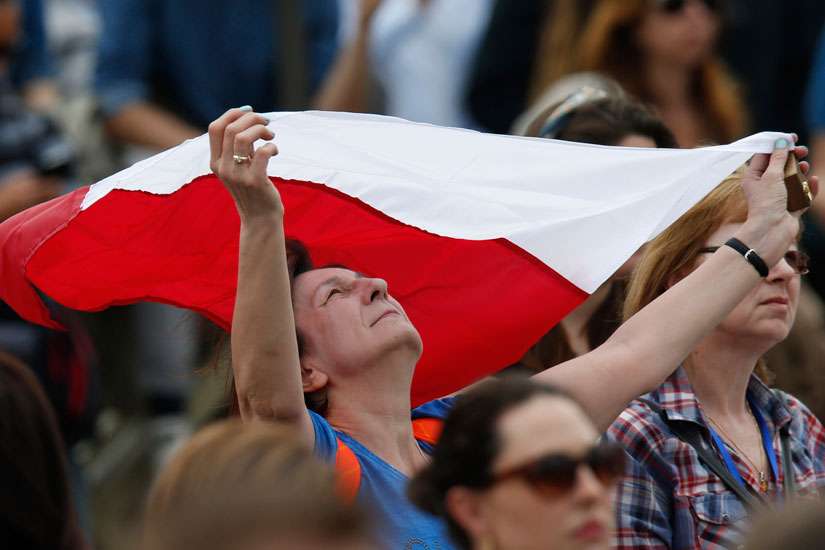"Polish church delegates will certainly stick to the understanding of Popes Paul VI and John Paul II," said Msgr. Jozef Kloch, spokesman for the Polish bishops' conference.
"As the vicar of Christ, the Holy Father will decide what can be accepted. In this sense, we've nothing to fear. At the Second Vatican Council, there was also intense debate, so arguments and conflicts are quite normal," he said.
The priest spoke after the bishops approved a position paper for the synod during meetings June 9-10.
In a June 12 interview with Catholic News Service, he said the Polish church was determined to resist calls for reform on issues such as homosexuality and Communion for divorced and remarried Catholics.
He added that there were no plans to publish Polish responses to a questionnaire circulated to dioceses by the Vatican with the "lineamenta," or outline, for the Oct. 4-25 synod.
"Those responsible have said the responses were unanimous and unambiguous. There's no support for change in Poland," Msgr. Kloch said.
"This wasn't an academic research project, just a survey to help the Apostolic See know our position, nothing more. I don't think our bishops would place the results on such a high level as to publish them," he said.
In a survey published March 10 by the government-owned Public Opinion Research Center, up to three-quarters of the Poles surveyed said they disagreed with their church's stance on homosexuality, contraception and extramarital relationships, and favoured changes to Catholic teaching on issues such as divorce and clerical celibacy.
KAI, Poland's Catholic information agency, said the survey had been "inspired" by last October's extraordinary Synod of Bishops on the family, adding that 61 per cent of respondents had said they expected Pope Francis to make "significant changes in church teaching."
However, Bishop Jan Watroba of Rzeszow, chairman of the Polish church's Family Commission, told KAI that responses to the Vatican questionnaire had shown a "unanimous position" by "broad circles of clergy and faithful," adding that no Polish church groups expected "any adaptation of church doctrine or moral teaching."
Meanwhile, Archbishop Stanislaw Gadecki of Poznan, bishops' conference president, confirmed that the Polish responses had been sent to the synod secretariat in Rome.
"We aimed to produce a distinctive position, which wouldn't represent the voice or views of this or that bishop, but of our whole conference," Archbishop Gadecki said at a June 11 Warsaw news conference.
"We certainly won't be going in the theological direction presented by certain German-speaking circles. We believe the output of Paul VI, John Paul II and Benedict XVI, and recent statements by Pope Francis, are enough to view church teaching as a continuum, not as a revolution," the archbishop said.
Synod preparations have provoked controversy in Europe, where some Catholic bishops, notably in Germany, have argued for a more liberal approach to marriage and family issues.
On May 9, the Central Committee of German Catholics voted unanimously to demand that the synod bless of same-sex partnerships and second marriages as well as support a "reassessment of contraception methods" and "a clear positioning against the still-existing exclusion of homosexuals."
However, such changes reforms were rejected when Catholic bishops from Eastern Europe met in May in Bratislava, Slovakia, to plan a coordinated stance for the synod.
Archbishop Gadecki, who chaired the Bratislava meeting, warned in a keynote speech against "modifying the church's discipline" for those in unmarried relationships, and urged "people with homosexual tendencies" to undergo therapy.


